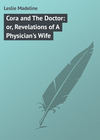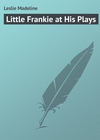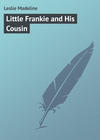Loe raamatut: «Cora and The Doctor: or, Revelations of A Physician's Wife», lehekülg 24
CHAPTER XL
"How few, like thee, inquire the wretched out,
And court the offices of soft humanity!
Like thee, reserve their raiment for the naked,
Reach out their bread to feed the crying orphan,
Or mix the pitying tears with those that weep!" Rowe.
Wednesday, October 22d.
Last evening the company began to assemble for the levee at an early hour, and consisted of persons selected without any reference to the accidental distinctions of wealth and rank. Mr. Marshall, the attorney General, and Thomas Jones the reformed inebriate, but now one of the most respectable and respected citizens of the town, were in close proximity. Here too, were Mr. Allen and Mrs. Lucy Mansfield, at the head of the wealthy aristocracy, in animated conversation with William and Anna Reynolds, once so oppressed with poverty. Mr. Benson and Emily, who would anywhere be recognized as persons of true refinement and grace, bestowed special attention upon those present, who were unaccustomed to such scenes, and on that account timid and reserved. A table was extended the entire length of the dining room, and bountifully crowned with delicacies and luxuries, of which at the proper hour all were invited to partake. The bride and bridegroom with their train, who were in attendance as at the wedding, mingled with the company and addressed a kind word to each.
There were so many children and young people present who were obliged to leave at an early hour, that the Doctor, after consultation with me, requested Mr. Munroe to close this interesting interview with prayer. Instead of complying immediately with this request, I noticed that Dr. Clapp stepped forward and said something to the Doctor, and then suddenly left the room in company with the reverend gentleman, Mr. Marshall, Allen Mansfield, and one or two others. I looked at Frank, wondering what this could mean. He whispered to me, that Dr. C. wanted to have a little singing. I was still more puzzled when Emily Benson touched my arm and desired to speak with me. "They have found out," said she, "that it is Frank's birth-day, and want to sing a hymn in honor of the event. Take his arm and keep him quiet, just where you are." She then went and led mother and the children near me, and taking her husband's arm, stood behind us.
The gentlemen returned, and Dr. Clapp, who is a fine singer, commenced the following hymn, in which he was joined at first by nearly all the company except our immediate family:
To him who e'er hast lent a hand
In hours of direst woe,
Who like a brother led the way,
And showed us how to go;
To him who oft has bowed the knee
Beside the lowly cot,
Here thanks we give, here thanks we pay,
On this thy natal day.
Kind benefactor, brother, friend,
Our words but feebly tell
The gush of love comes over us,
And in our bosoms swell,
For all thy kindness, all thy care
For souls by sin oppressed,
Here thanks we give, here thanks we pay,
On this thy natal day.
May He who in his precious word
Declares the giver blessed,
E'en far beyond recipients,
Pronounce thee doubly blessed;
And as swift years their circles speed,
May lover, children, friends,
Combine to bless thy natal day,
As we our thanks do pay.
I never knew Frank so much overcome. He put his handkerchief to his eyes, and then made a movement as if he were meditating an escape from the room; but I whispered, "don't leave me, Frank."
When the singing terminated, Rev. Mr. Munroe stepped forward and began to make a speech. My heart beat very fast; and for a moment I felt as if I were going to be married. I was so much overcome that I could not hear all that was said, but the next hour was occupied with speeches addressed to the Doctor, by Rev. Mr. Munroe, Mr. Marshall, Dr. Clapp, and Thomas Jones; each of whom in a most delicate manner, spoke of his happy influence and professional services. Mr. Munroe said, "No one could fully estimate the value of the labors of a pious physician this side of eternity." "Everywhere," he continued, "among this people, I find occasion to bless God for locating me in a parish where those labors abound."
Dr. Clapp thanked my husband for his kind attention, encouragement and friendship, and concluded by saying "I owe all my present ease and comfort to you, Dr. Lenox."
Allen Mansfield followed him, and in glowing terms spoke of the blessings for which under God he and his were indebted to Frank, and to our family.
Next Thomas Jones came forward to acknowledge his obligations. He commenced in a lofty strain. "Dear sir, I speak not for myself alone, but for a large class in the community, some of whom I see standing around you and your worthy lady and family, persons who through your instrumentality." – Poor man, his emotion choked his utterance, and he suddenly stopped, caught the Doctor by the hand, and broke out in a more natural and therefore impressive strain; "Oh, sir, think what I was when you found me, took me out of the ditch, led me home by the hand, encouraged and warned me, prayed with me and for me; think of me, a poor besotted drunkard, frightening my own wife and children, and see what your kindness has made of me and of them. I say with Dr. Clapp, that under God, I owe all this to you, Doctor; and there's many here whose hearts are saying the same thing. God bless you, Doctor, your beloved wife and children; and may he also bless us, and gladden our hearts, by many returns of your birth-day. Mr. Willard had prepared me a fine speech for the occasion; but before I got through the first sentence I forgot the whole of it." This frank acknowledgment suddenly turned the sorrow that was suffusing so many eyes into a roar of laughter, in which even the weeping Doctor could not but unite.
Finally, Mr. Marshall presented himself and said, "Dr. Lenox, there are many persons in this company who have it in their hearts to reiterate the remarks of Mr. Jones, Dr. Clapp and others who have addressed you; but the lateness of the hour forbids them the pleasure. Enough has been said to convince you, their esteemed friend and physician, that your labors have been neither in vain, nor unappreciated. In their behalf and in my own behalf, I thank you for your ministrations of kindness, for your charity to the poor, and your relief of the distressed; and I cordially unite with them in the desire that your life and valuable services may be long spared to us, and to the community in which we live. I conclude with this sentiment: "Our beloved physician – he has sown bountifully, may he also reap bountifully, harvesting esteem in this world, and life eternal in the world to come."
"Thy natal day —
And duly shall our raptured song,
And gladly shall our eyes
Still bless this day's return, so long
As thou shalt see it rise."
When he had closed, Mr. Marshall, perceiving that the Doctor was too much overcome to attempt a reply, turned to the pastor, who concluded the service with a solemn and impressive prayer. There was hardly a dry eye in the room, while Cæsar and Phebe, who stood in the rear of our family, sobbed aloud. The Doctor kept his handkerchief to his eyes, and he told me afterwards, that it was with difficulty he could support himself.
After prayer, the company bade us good night and retired. The next morning, at family prayers, I was delighted to hear my husband pray that he might not be led to take to himself that glory which was due to God alone; but that the late scene might humble him and render him more diligent in his master's service.
Friday, October 24th.
This morning, before Pauline's departure, Eugene put into her hand, legal documents conveying to her one half of their deceased father's estate. Uncle and aunt Morgan are to return with the bride and bridegroom. Charles Karswell and Anna Reynolds are to be of the party as far as New York city, and Eugene to New Haven, where he is to resume his place in the senior class in Yale College, which he entered at the last commencement.
Now that they all have gone, I begin to realize that Pauline, the child of my heart, has left me, and in spite of all my efforts at resistance, a sadness steals over my spirits. I try to compose myself, and to realize some comfort from the thought my dear husband holds up to my view, that I have gained a son. But as yet I can only remember that I have lost the society and companionship of my lovely daughter; I think that Frank feels her loss almost as much as I do; for though he appears very cheerful, yet there is a pallor about his mouth which I have always noticed when his feelings are deeply moved. I heard him as he left me to visit his patients humming a lively tune; but I knew that he only did it, as boys whistle in the dark, to keep their courage up.
CHAPTER XLI
"When all the fiercest passions cease,
(The glory and disgrace of youth;)
When the deluded soul in peace,
Can listen to the voice of truth;
When we are taught in whom to trust,
And how to spare, to spend, to give;
(Our prudence kind, our pity give,)
'Tis then we rightly learn to live." Crabbe.
"Papers relating to my beloved Imogen, to be read by my son on his attaining his majority. H. C. S
"My dear son Eugene, – When you unseal this packet, the hand which wrote this brief account of your mother, will be mouldering in the dust. When you have read it, you will need no farther explanation of the cause of that sorrow which has brought me to the grave. Nor will you wonder that I could never enter upon the subject so often and so naturally referred to by you.
"My beloved Imogen, your mother was born in Nice, of highly respectable and wealthy parents. The estate on which they lived, which has of course much depreciated in value, together with funds in Paris, enabled them to live in comfort, and to bestow upon their only child, Imogen, the best advantages of education.
"In the autumn of 1828, I went to Rome for the winter. There I first met her, whose image from that hour to the present has never left me. Though her great personal beauty, both of face and figure, joined to her remarkable mental endowments, rendered her the object of universal admiration, yet I alone won the affections of her generous heart, a heart which, though warm and impulsive beyond even the daughters of her native clime, was pure as that of a vestal.
"But my throbbing pulse and trembling hand warn me not to delay at this point of my story. Suffice it to say that I returned with my beloved Imogen to Nice, and our betrothal receiving the sanction of her parents, we were married; their only condition being a promise from me, that when I was ordered abroad, (I was then in command of troops in his majesty's service,) she should return to them to remain during my absence.
"No language can describe to you the happiness experienced by us during the few years which followed. An amount of happiness not often vouchsafed to man. Alas! alas! I sought nothing beyond the felicity of the present hour. I adored my wife, and lovely boy, but forgot even the being of that God, who had blessed me so far beyond the common lot of mortals. But early in the year of 1833, I was fully awakened to a sense of my bliss, by the thought of the terrible separation which had now become necessary. I received orders to join my regiment and go to India. I had taken one furlough after another, but now there could be no more delay. In the first frenzy of her despair at losing me, Imogen insisted upon accompanying me. But earnestly as my heart seconded this appeal, I could not be so rash as to allow it. It was within a few months of her accouchement; and I determined not to leave her until she was safe in Nice under the care of her parents. This, however, circumstances compelled me to do. At this crisis, Ralph Mortimer, a young officer, who was dear to me as a brother, arrived in England. He had sold out his commission, and was intending to go to France to recruit his wasted strength and spirits. I met him accidentally, and in a few moments had communicated to him the nature and depth of my affliction. He was somewhat roused from his melancholy by my distress; and without detailing minutely what followed, it was at length decided that I should remain with my family until the time of sailing, and then Mortimer would proceed to Nice with Imogen and our boy. I presented every possible inducement to him to remain in Nice, that I might feel in case of her parents' death, or any unforeseen event, that my dear wife would have a protector. She, however, in private informed me that she feared constant intercourse with a man so morose and melancholy would only prey upon her spirits. But I hoped much from her influence to overcome this morbid state, and as there was no living being in whom I had such entire confidence, I rather urged this upon her. My friend I believed to be the very soul of honor and – But I cannot go on. I have been thus particular to show you that I was the only mover in these arrangements for her comfort during my absence; and that she unwillingly agreed to them solely out of her affection for me; often repeating, that in the society of her parents, and with the affection and nurture of her beautiful boy, she should endeavor to pass away the time, and count the months when I should return to her arms.
"Passing over the frantic grief of my loved Imogen from whom I was obliged forcibly to tear myself away, I went mechanically on board the vessel which I regarded with horror as the one that was to bear me far from all I loved; nay, idolized. Mortimer accompanied me, and I was startled from my brief unconsciousness and unconcern of what was passing, by his approaching to take leave.
"Drawing him passionately to a retired part of the vessel, I there extracted from my friend a promise that after accompanying her to her parental home, he would under all circumstances watch over her with the affection of a brother; that he would never cease his efforts for her happiness or prosperity. All this, he solemnly promised out of regard to our early and long tried friendship. Afterwards I let him go.
"During the ensuing year, I received letters from home announcing the birth of a little daughter; and also the sudden death of my wife's father, which latter event was quickly followed by the decease of her mother.
"Imogen was now alone, and Mortimer, though still an invalid, prompted by his desire to fulfil his promise to me, spent much of his time in her blissful society, having his rooms at the hotel, which was near her residence. It was his delightful privilege to watch the unfolding of our two precious buds of promise, to administer consolation to his sorrowing charge in her successive bereavements. Alas! alas! while soothing her grief, a pang entered his own soul. He suddenly awakened to the fact that he loved one, whose innocent purity of thought and action were at every meeting more and more apparent. He loathed himself for his perfidy to the brother of his early affections; that he had thus returned the generous confidence which had confided to him in perfect trust, the wife of his youth, the chosen companion of his heart.
"But I am anticipating. Toward the close of the year 1834, I received a letter, purporting to be from a gentleman residing in Nice, and who professed great interest in me. This letter, though cautiously written, yet more than hinted at the unfaithfulness of my wife, and the perfidy of her companion, Ralph Mortimer. When I received it, like the bite of a poisonous serpent, it instantly diffused itself through every vein in my body. I gnashed my teeth that I could not get my hands upon the villain, and tear him to pieces. But I was thousands of miles away, and must bear my dishonor as best I might. After a night, spent in such horror as no words can describe, I determined to resign my commission, to sacrifice everything in order to get home. What was to become of me when there I never thought. But before I could accomplish my wishes, the idea which waking or sleeping was ever before me, of him whom I considered too vile, even for the company of devils, in the constant society and love of my hitherto adored wife – this idea so wrought upon a frame enfeebled by a hot climate, that I was laid upon my couch with fever. So violent was this attack, that there was no hope of my recovery. For weeks, I lay unconscious; but when I recovered my reason, and was told I could not live, I knew better. I was sure I should be allowed to unmask the traitor, and expose Mortimer to infamy. I was right. I recovered so rapidly that the most sanguine expectations of my friends were more than realized; and far sooner than I had even dared to hope, I was ready to sail for England. But I had nearly failed in this, for when about to embark, having all my goods on board, I received another letter, containing intelligence which had I doubted before, would now, alas! have left no farther room for doubt. Burning with rage, I was carried on board ship, where, by a dreadful relapse of fever, I was brought a second time to the borders of the grave. Again mercy interposed, and I partially recovered. But I felt no gratitude for restored health, – no thanks to the Being who had preserved me amidst so many dangers. All the feelings of my soul were concentrated into one burning desire for revenge, and every moment which delayed this, was an age to my impatient spirit.
"I landed in England, and without an hour's delay took passage for Havre, from which place I proceeded to Nice.
"Oh, my son Eugene! I have taken up my pen many times, and unable to relate, even to you, the awful, the shocking events which followed, have again and again been obliged to lay it down. But justice to your departed mother requires the sacrifice, and it shall be made.
"I reached Nice, and with the fires of Etna raging within me, I drove directly to the home of Imogen. She was not in. One of the servants informed me she had gone out to walk with Mr. Mortimer.
"The old steward caught my hand, as without waiting to see my children, I was rushing after the wanderers. "Thank God!" said he, "that you have returned."
"Even in this cordial welcome, I read a confirmation of my dishonor. Having learned the direction they had taken, I flew along the streets until at length I saw my wife approaching with Mortimer. I instantly crouched behind a wall, and as they passed, heard her imploring him to leave Nice.
"He told her it was in vain for her to plead. The time had passed when he might have done so; now it was no longer in his power to tear himself from her presence.
"Had I not heard enough? A voice within me thundered why wait for more? With one bound, I leaped like a tiger over the wall, and throwing him to a distance from where she stood, I presented a pistol to his breast.
"The movement had been so sudden, and unexpected, that for an instant they stood paralyzed. But recovering himself, Mortimer, though pale as death, stood erect before me, saying, 'you can do me no greater favor than to end a life so miserable as mine has become.'
"There was something about him which reminded me of the loved Ralph of my boyhood, and my hand holding the pistol dropped to my side. But Imogen rushed forward and threw herself at my feet. 'Spare his life! oh, Harry! spare his life!!'
"In this appeal, I recognized only her love for the guilty wretch; and I spurned her from me, calling her by the vilest of names. She fell senseless to the ground, and I, maddened by the scene, only waited to appoint a meeting for the morrow with Mortimer, when hastening to the inn, where I had ordered my horse to be left, I flew rather than rode to the next town. I cannot tell how I passed the night. At the time specified, I was at the place, and soon Mortimer met me. I placed a brace of pistols in his hand, and in a voice hoarse with passion, I bade him take his choice.
"Mechanically he took one from me, and then stopped. 'Harry,' said he, 'one word before you fire. I alone am to blame. Imogen is' – he hesitated – 'an angel!'
"'Yes,' said I, drawing my breath with difficulty, 'but a fallen one.'
"He groaned aloud. 'Oh, God forgive me that I should have made her suffer!'
"I was beside myself as he thus dared to avow his love, and I ordered him to stand, or I could not restrain myself. He stood around facing the sun. Even in my rage, I would not take advantage of this, but pointed to him to change his position.
"'No,' said he, 'I neither deserve nor wish to live. Fire, Harry,' he continued, as I paused. 'I never will raise my hand against one I have treated so treacherously!'
"'Ralph,' I exclaimed, 'You dare not refuse to give me satisfaction.'
"Without another word, he placed the pistol to his own breast, when, with a spring into the air, he fell heavily to the ground. He had taken his own life.
"I flew to him, and raised him in my arms. All my revenge was oozing out with the blood which poured from his death wound.
"'Oh, Harry,' he said faintly, 'tell me before I die that you will forgive Imogen. She is innocent. She never knew till yesterday that I loved her, and then she implored me to leave her at once. She said her heart was all yours.'
"I gasped for breath. 'Ralph,' I shouted, 'say again that she is innocent, and I will willingly lie down beside you and die.'
"'Harry,' and the voice grew more and more faint. 'I would not deceive you. Had she known the wicked feelings I have indulged, she would have spurned me from her presence.'
"'And you?' I asked quickly.
"'I dared – to love her – whom you – so trustingly – confided – to – my – care!'
"The last words were spoken so faintly, that by putting my ear to his mouth, I could scarcely distinguish them. 'Oh, Ralph,' I exclaimed in an agony of remorse, 'you must not die!' The blood had ceased flowing since I had crowded into the wound a handkerchief torn from my neck, and I began to hope he had but fainted. I shouted 'help!' Soon some men came running from a field. I told them a man was dying from loss of blood, and I wanted help to carry him to the inn.
"From that fatal moment, I remember nothing which passed for nearly a month, except lying in a darkened room, while a figure dressed in white floated around me. When I partly recovered my consciousness, I began to listen for the light footstep, and looked up to see my nurse. She was dressed in a gray robe, like the sisters of charity, with a hood which nearly concealed her face. I turned my head to the wall and sighed; but my thoughts soon wandered, and I forgot my disappointment. Whenever I slept, I dreamed that my Imogen was by my side, but awoke only to see the calm figure of the hooded nun. Twice I felt sure I heard violent weeping in the room, but could never discover the cause.
"I had now regained my consciousness, but I dared ask no questions. The nun never spoke. She performed the office of a nurse in the most tender and devoted manner. But after I had begun to question her, she left me, and her place was supplied by another. I asked my physician to restore the one who had so kindly watched over me.
"'Her skill has saved your life,' was all his reply.
"I asked him how I came to this place.
"'When you are strong enough to bear it I will tell you.'
"This answer put me back several days. When at the worst, I one day suddenly opened my eyes, and found the gray nun leaning over me. For an instant the large lustrous eyes looked mournfully into mine, and I was sure Imogen was before me, when turning partly aside, a calm, cold voice asked me what I would have.
"The disappointment was too great. I buried my head in the bed clothes and wept. I saw her no more. A week passed away; it was a full month since I first asked the question; and I again implored my kind physician to tell me what had happened during my sickness. I found Mortimer had never spoken after he reached the house; and I had been discovered and conveyed to my home, I never knew by whom.
"I had over-estimated my strength, and again relapsed. But this time I had my reason. Then it was that my sins stared me in the face. I was a murderer. Yes, though my hands had not shed blood except in battles, yet in the sight of God, aye, and in my own sight, I was a murderer.
"But where were Imogen and my children? I had often asked this question, but had never been able to obtain a reply. I now determined to ask Mr. Percival; and taking advantage of an early visit, I put the question directly to him, 'Where is my wife?'
"He shook his head mournfully.
"'I cannot be kept longer in suspense,' I exclaimed. 'Do not fear it will injure me.'
"'I shall probably be able to impart some knowledge of her at our next interview,' he replied, and soon took his leave.
"When he bent over my head at parting, I saw his eye was moistened by a tear, and I loved him for sympathizing in my grief.
"Oh, my son! my hand almost refuses to record the pang which was soon to seize my soul. During the days succeeding his visit, I arose from my bed, dispensed with the services of a physician, and yet my kind friend came not. I determined to wait no longer. Though hardly daring to hope that my injured wife would forgive me, yet I longed to throw myself at her feet, and sue for pardon. I called my servant and told him to send for the clergyman.
"He replied, 'Mr. Percival is below, and will wait upon you.'
"Something in the manner of the man alarmed me, and sinking back in my chair, under an apprehension of I knew not what, I impatiently awaited my visitor. He came in, kind and gentle as ever, and sat by my side.
"'You promised,' said I eagerly, 'to tell me of my Imogen.'
"'I have come for that purpose, my son,' and again he paused.
"'Mr. Percival,' I said, catching hold of his hand, 'Have you no compassion?'
"He put his handkerchief to his eyes. 'She is at rest!'
"I sprang from my chair, and stood before him, only half comprehending his meaning. 'Where?' I tried to articulate.
"He pointed upward. * * * * *
"I pass over the agony of that period. It was a long, long time before I could be reconciled to life. I could not endure the thought of leaving the grave of my lost Imogen, and I sent my steward to England for our children. My sympathizing friend, Mr. Percival, had directed me where to find them. The steward returned with you, my son; but from that time to the present, I have never been able to find the least trace of the little Inez. She had started for England with her nurse to meet you, who were there with our friends, and though I caused the strictest enquiries to be made, and advertised in the papers for many months, yet nothing could be learned. She was probably wrecked in a vessel reported as lost at sea about that time.
"This loss was, however, but slight compared with the one which from the hour I heard it, to the present, has pressed upon me with a mountain weight. The conduct of your mother was so spotless, that, notwithstanding the intimacy of Mortimer in the family, not a breath of calumny had ever fallen on their intercourse. The loss of her parents had been blessed to her soul, so that for a year she had been a humble Christian. She came and watched over me during my sickness in the disguise of a nun, the physician enforcing perfect silence as the only condition of her presence. She arose from her bed to look upon me once more, and then returned to the parsonage to die of a broken heart.
"My dear son, Eugene, I have now concluded my brief sketch of my crimes, and of your mother's virtues. No motive less powerful than the desire to do justice to her memory, together with the hope that you may be enabled by the grace of God to avoid the one and to imitate the other, could have induced me to make a record of this portion of my life.
"I have with great satisfaction observed that in the sweetness and urbanity of your disposition, you resemble your lovely mother. Could I feel that religion guided, and governed your thoughts and actions; that the instructions I have endeavored to impress upon your mind, would be sanctified to your heart by the Holy Spirit; that the daily and hourly prayers I have sent up to heaven in your behalf would be accepted, and answered, then indeed I could lay me down and die in peace.
"Oh, my dear son! Take warning by my crimes; by the sudden blighting of all my fondest hopes; by my premature old age; but above all, by the agony of remorse, which has in the prime of life, brought my gray hairs in sorrow to the grave; take warning never to be governed and controlled by passion. Never allow yourself to be influenced by what is falsely called "honor," to raise your hand against your fellow.
"In every event of life you have a sure guide in the word of God. Read it, my son; read it daily; read it prayerfully; endeavor to conform your life to its precepts; so shall you be useful in life, peaceful in death, and happy through all eternity.
"And now, my dearly beloved son, farewell! Though my sins have risen up to heaven, yet the blood of my crucified Saviour has sufficed to wash away their guilty stains. I leave myself with him, trusting solely in his righteousness for pardon and salvation.
"Soon I hope to receive my summons to resign my earthly tabernacle, and to join my Imogen in forever singing praises to him who died to redeem my guilty soul.
"Eugene, my son, Eugene! Farewell!!"



















